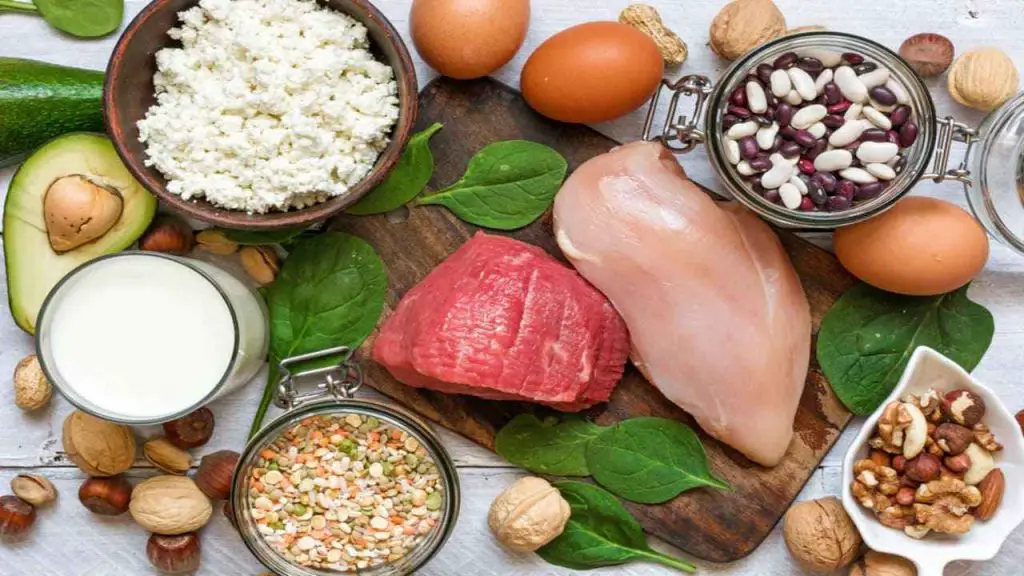Protein is an essential nutrient that plays a vital role in maintaining good health. It is responsible for building and repairing tissues, producing enzymes and hormones, and supporting the immune system.
But what happens if you don’t eat enough protein? Many people are unaware of the importance of protein and often neglect it in their diets. While carbohydrates and fats are also important, protein is the building block of the body, and not getting enough of it can have serious consequences.
In this article, we’ll explore the effects of not getting enough protein in your diet. From muscle loss to weak immune systems, we’ll take a closer look at the impact of protein deficiency and why it’s crucial to ensure you’re getting enough of this vital nutrient.
So, if you’re curious about what happens when you don’t eat enough protein, keep reading to find out.
Basics of protein
Proteins are essential macromolecules that play a crucial role in the functioning and structure of cells in living organisms. They are made up of long chains of amino acids that are folded into complex three-dimensional structures.
Proteins serve various functions in the body, including catalyzing chemical reactions, transporting molecules, providing structural support, and regulating gene expression.
The basic building blocks of proteins are amino acids, which are linked together through peptide bonds to form polypeptide chains. There are 20 different types of amino acids that can be combined in various ways to create different types of proteins.
Understanding the basics of protein is essential for anyone interested in biology, health, or nutrition.
Sources of Protein

Meat
Meat is a popular source of protein, whether it be beef, pork, chicken, or fish. It is a complete protein, meaning it contains all the essential amino acids needed for building and repairing tissues in the body.
Dairy Products
Dairy products such as milk, cheese, and yogurt are also great sources of protein. They are also high in calcium, which is essential for strong bones.
Eggs
Eggs are a versatile and affordable source of protein. They contain all essential amino acids and can be prepared in a variety of ways, making them a popular choice for breakfast.
Beans and Legumes
Beans and legumes such as lentils, chickpeas, and black beans are plant-based sources of protein. They are also high in fiber and other nutrients, making them a healthy addition to any meal.
Nuts and Seeds
Nuts and seeds such as almonds, peanuts, and pumpkin seeds are a great source of protein and healthy fats. They can be eaten as a snack or added to meals for an extra protein boost.
Tofu and Soy Products
Tofu and other soy products are popular vegetarian and vegan sources of protein. They are also a good source of calcium and iron.
Quinoa
Quinoa is a gluten-free grain that is high in protein and other nutrients. It is a versatile ingredient that can be used in a variety of dishes, from salads to stir-fries.
What happens if you don’t eat enough protein?
Muscle Loss
Protein is essential for building and maintaining muscle mass. Without enough protein, your body may break down muscle tissue to use as energy, leading to muscle loss and weakness.
Weakened Immune System
Protein plays a crucial role in the production of antibodies and immune system cells. Not consuming enough protein can weaken your immune system, leaving you more susceptible to infections and illnesses.
Slower Healing Time
Protein is also important for tissue repair and wound healing. Without enough protein, your body may take longer to heal from injuries and surgeries.
Fatigue and Weakness
Protein is a major source of energy for the body. Without enough protein, you may feel tired and weak and have difficulty completing physical tasks.
Hair, Skin, and Nail Issues
Protein is necessary for the growth and maintenance of hair, skin, and nails. A lack of protein can cause brittle hair, weak nails, and dry, flaky skin.
Hormonal Imbalances
Protein is involved in the production of hormones, including insulin and cortisol. Without enough protein, your body may struggle to regulate these hormones, leading to imbalances and potential health issues.
Increased Risk of Chronic Diseases
A diet lacking in protein can lead to a variety of health issues, including an increased risk of chronic diseases such as osteoporosis, heart disease, and diabetes.
Overall, consuming enough protein is crucial for maintaining optimal health and preventing a variety of health issues. If you’re struggling to consume enough protein in your diet, consider supplementing with protein powders or bars to ensure you’re meeting your daily needs.
Conclusion
If you don’t eat enough protein, your body can suffer from a variety of negative effects. Protein is essential for building and repairing tissues, producing enzymes and hormones, and maintaining a healthy immune system.
Without enough protein, your muscles may weaken and atrophy, leading to decreased strength and mobility. You may also experience fatigue, hair loss, and a weakened immune system, making you more susceptible to illness.
In extreme cases, a lack of protein can even lead to stunted growth and developmental delays in children. It’s important to make sure you’re getting enough protein in your diet to support your body’s needs.
FAQ’s
How much protein is needed by the human body per day?
The amount of protein needed by the human body per day varies depending on several factors such as age, sex, weight, and level of physical activity. Generally, the recommended daily intake of protein for adults is 0.8 grams per kilogram of body weight.
However, athletes and individuals who engage in regular intense physical activity may need more protein to support muscle growth and repair.
It is important to note that excessive protein intake can also have negative effects on the body, so it is essential to consult with a healthcare professional to determine the appropriate amount of protein for your individual needs.
What are the signs of eating fewer proteins?
Eating fewer proteins can have several negative impacts on your body, and there are some signs that you may experience if you are not consuming enough protein.
Some of the most common signs of protein deficiency include thinning hair, brittle nails, and dry skin. You may also experience muscle weakness, fatigue, and a decreased immune system.
Additionally, you may feel hungry more often or experience cravings for sugary or carb-heavy foods. If you are concerned that you are not getting enough protein in your diet, it is important to speak with a healthcare professional or registered dietitian to develop a plan for meeting your nutritional needs.
Does your immune system gets weaken if you don’t eat enough proteins?
Proteins are essential building blocks for our body, and they play a vital role in maintaining a healthy immune system. If you don’t consume enough protein, your immune system may become weakened, making you more susceptible to infections and illnesses.
Proteins are responsible for producing antibodies that fight against harmful viruses and bacteria. They also help in the production of white blood cells, which are crucial for a strong immune system.
Therefore, it’s essential to ensure that you consume enough protein-rich foods to maintain a healthy immune system and protect yourself from diseases.



